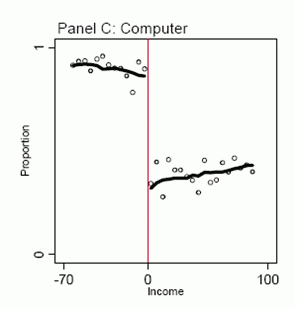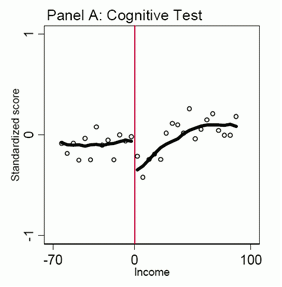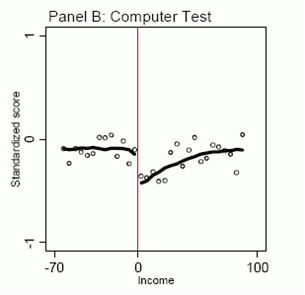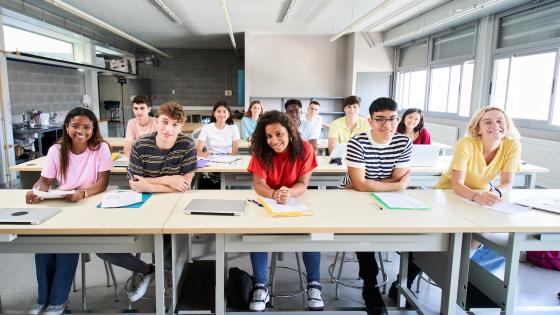There are large disparities in computer ownership both between and within countries. Estimates from the OECD's 2003 Programme for International Student Assessment (PISA) indicate that most 15 year old students in developed countries have access to a computer at home (91% in the US). In contrast, only about half of 15 year old students have access to a home computer in emerging Eastern European countries such as Latvia, Poland, and Serbia. Among 15 year olds in the bottom social economic status quartile within these countries, fewer than a quarter have access to a home computer. This fraction is substantially lower for less-developed countries such as Thailand, Tunisia, and Turkey, and close to zero for countries in sub-Saharan Africa and parts of south Asia (OECD 2005).
Many government and non-governmental organisations are trying to bridge this “digital divide” across nations and between households.
- For example, the One Laptop per Child programme has received substantial publicity in its efforts to develop a cheap laptop computer suitable for children in developing countries.
- Uruguay has already completed its Plan Ceibal by providing a free laptop to every primary school child, while other countries, such as Peru and Colombia, have placed orders for hundreds of thousands of computers (de Russe 2009).
Even in cases where these computers are provided for school use, they are also intended to serve as home computers. Indeed, the chairman of One Laptop per Child, Nicholas Negroponte, explained that “mobility is important, especially with regard to taking the computer home at night…bringing the laptop home engages the family.”
These major efforts to increase computer access among children are happening despite relatively little evidence regarding the effect of home computers on children's outcomes.
Related literature
Prior research examining the relationship between home computer use and child outcomes has yielded somewhat mixed findings. Using the Current Population Survey, Fairlie (2005) and Beltran et. al. (forthcoming) find that teenagers with access to home computers are more likely to be enrolled in school and 6 to 8 percentage points more likely to graduate from high school than their counterparts who don’t have home computers.
Fuchs and Woessmann (2004), on the other hand, find a negative correlation between home computers and student achievement using the international student level Programme for International Student Achievement database. In a recent paper, Fairlie and London (2009) conduct a field experiment in which financial aid students attending a large college in Northern California were randomly selected to receive free home computers. While they find some positive effects of providing computers on educational outcomes and self-reported computer skills, their estimates lack sufficient precision to enable strong inferences.
Recent research on based on a unique dataset
In a recent working paper (Malamud and Pop-Eleches 2010), we analyse a government programme administered by the Romanian Ministry of Education which subsidised the purchase of home computers. The programme awarded approximately 35,000 vouchers worth €200 (about $300) in 2008 towards the purchase of a personal computer for low-income students enrolled in Romania's public schools. Similar to programmes in other countries, the “Euro 200” programme was intended to increase home computer use among disadvantaged families and promote computer skills for school-aged children.
Since the fixed number of vouchers were allocated based on a simple ranking of family income, we employ a regression discontinuity design that allows comparisons across students very similar in family income and other respects, but markedly different in their access to a computer at home. Using data that we collected through in-person household interviews, we estimate the impact of winning a programme voucher on computer ownership and use, academic achievement, cognitive assessments, computer skills, and various behavioural outcomes.
The pros and cons of a PC
Our findings indicate that home computer use has both positive and negative effects on child outcomes. We find that winning a voucher increased the likelihood of households owning a home computer by over 50 percentage points, making them almost twice as likely to own a computer as compared to households who had incomes above the programme threshold. As expected, higher rates of computer ownership also led to increased computer use, with children in households who won a voucher using computers about 3 to 4 hours a week more than their counterparts who did not win a voucher. These results can be easily seen in Figure 1, where the income cutoff (normalised to zero) is shown by the red line.
Figure 1. Computer ownership and computer use
Source: Malamud and Pop-Eleches 2010
We find strong evidence that children in households who won a voucher had significantly lower school grades. The results for Math and Romanian GPA based on the children reports are shown in Figure 2.
Figure 2. Math and Romanian GPA
Source: Malamud and Pop-Eleches 2010
On the other hand, we estimate that children in households who won a voucher had significantly higher scores in a test of computer skills and in self-reported measures of computer fluency. Furthermore, there is also some evidence that winning a voucher increased cognitive ability, as measured by a Raven's Progressive Matrices test (see Figure 3).
Figure 3. Cognitive and computer tests
Source: Malamud and Pop-Eleches 2010
We find little evidence that winning a computer voucher affects behavioural outcomes. In summary then, home computers use has an important impact on the development of human capital. Although less precise, the same pattern of results holds for a smaller sample of households who received a computer voucher four years earlier, suggesting that our main findings persist over time.
These results may not be so surprising given that few parents or children report having educational software installed on their computer, and few children report using the computer for homework or other educational purposes. Instead, most computers had games installed and children reported that most of the computer time was spent playing games. There is also some evidence that winning a computer voucher reduced the time spent doing homework, watching TV, and reading. Interestingly, we find evidence that the presence of parental rules regarding homework mitigate some of the negative effects of winning a computer voucher without affecting the gains to computer skills and cognitive ability. On the other hand, the presence of rules regarding computer use reduces the positive impacts on computer skills without improving academic achievement. Although these results are merely suggestive since such rules are not randomly assigned, they may indicate that encouraging homework is more effective than restricting computer use.
Discussion
Our analysis shows that providing home computers to low-income children in Romania lowered academic achievement even while it improved their computer skills and cognitive ability. How do we interpret these findings? The Euro 200 programme was extremely successful in increasing home computer ownership and use among low-income children.
Yet despite the efforts of the Romanian Ministry of Education to encourage the use of these computers for educational purposes, relatively few children have educational software installed on their computer, and fewer still report using their computer for educational purposes. This may have contributed to the decline in academic achievement. In other words, time spent on a computer may have displaced valuable educational activities. On the other hand, access to a home computer resulted in increased computer skills which may lead to improved labour market outcomes in the future.
Our analysis also brings out the important role of parents in shaping the impact of home computer use on child and adolescent outcomes. Since computers represent such a versatile technology, the potential risks and benefits are highly dependent on the availability of different types of software and the patterns of actual use. Parents can take an active role in selecting software, supervising their children, and setting rules on computer use and homework activities. Thus, our findings also raise questions about the implementation of recent large-scale efforts to increase computer access for disadvantaged children around the world without paying sufficient attention to how parental oversight affects a child's computer use.
References
Beltran, Daniel, Kuntal Das, and Robert W Fairlie (fortcoming), "Are Computers Good for Children? The Effects of Home Computers on Educational Outcomes", Economic Inquiry.
de Russe, Marina (2009), "Laptop becomes reality for Uruguay's schoolchildren", AFP.
Fairlie, Robert W (2005), "The Effects of Home Computers on School Enrollment", Economics of Education Review, 24:533-547.
Fairlie, Robert W and Rebecca A London (2009), "The Effects of Home Computers on Educational Outcomes: Evidence from a Field Experiment with Community College Students", mimeo.
Fuchs, Thomas and Ludger Woessmann (2004), "Computers and Student Learning: Bivariate and Multivariate Evidence on the Availability and Use of Computers at Home and at School", CESIFO Working Paper 1321
Malamud, O and C Pop-Eleches (2010), "Home Computer Use and the Development of Human Capital", NBER Working Paper 15814.
OECD (2005), “Are Students Ready for a Technology-Rich World? What PISA Studies Tell Us”, (PISA) Paris.








